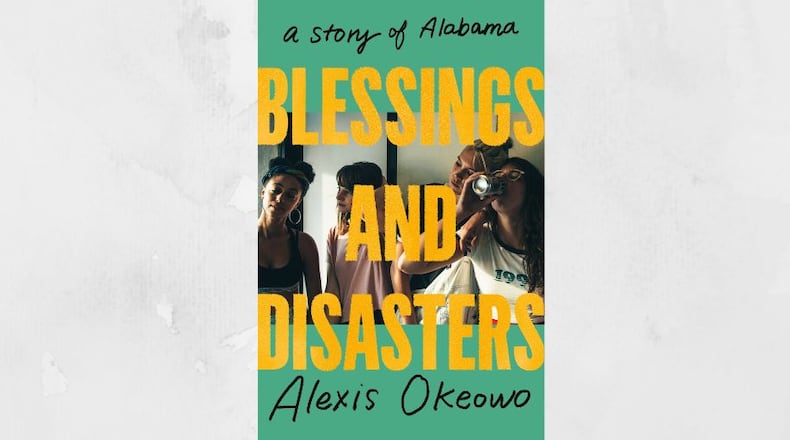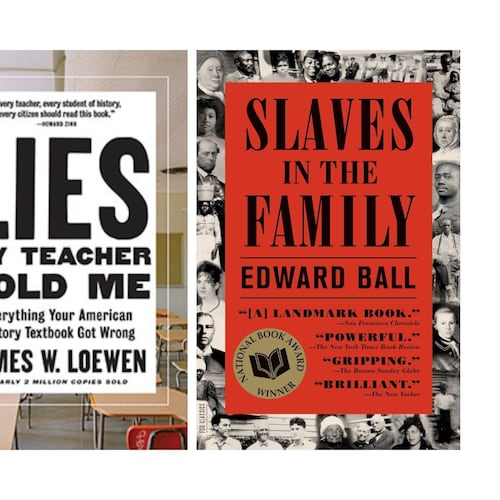Foreign correspondent and Alabama native Alexis Okeowo didn’t realize until she went to Princeton University at age 18 how shrouded her home state was in negative stereotypes. After arriving in New Jersey, she was challenged by Southerners and non-Southerners alike to either “agree and play up the state’s worst aspects or weakly defend it.” Over time, her memory acquiesced and she began lumping together the complex and nuanced dichotomy of people and influences from her homeland into a narrow archetype centered on racism, religion and politics.
Following the 2016 presidential election, Okeowo returned to her childhood home of Montgomery after a decade spent writing for The New Yorker about conflict and human rights in Africa and Mexico. Once home, she realized her exposure to other cultures had opened her eyes and exhumed a truth about her own experience she could no longer ignore: Alabama is a land brimming with multifaceted contrasts.
In Okeowo’s second work of nonfiction, “Blessings and Disasters: A Story of Alabama,” she blends history with modern sociological reporting and personal anecdotes to present a comprehensive and diverse snapshot of the Yellowhammer State. As the first-generation American daughter of Nigerian parents, Okeowo has a specific interest in expanding the conversation beyond the stereotypes she was confronted with at Princeton.
By exploring how different communities of color have maneuvered through a state rife with Confederate monuments and legislation upholding white supremacy, she paints an enlightening portrait of how Alabama has become “the most visible stage for the best and worst results of our (American) democratic experiment.”
Okeowo’s parents were drawn to Alabama State University in the 1970s by the financial-aid package offered to African students at the historically Black university. They relocated from Nigeria by choice, not fleeing poverty or conflict but seeking opportunity and advantage. They intended to return to their homeland after graduation.
One question Okeowo seeks to answer throughout her narrative is why her parents decided to make a state struggling to shed Jim Crow segregation and oppression the place to raise their family. It’s a complicated answer that only intensifies as she recounts the tension she observed between Black immigrants and Black Americans in her youth.
Credit: Maya Fuhr
Credit: Maya Fuhr
Delving deeper into the rich tapestry of Alabama’s residents, Okeowo rewinds to 1860 to tell a different immigration story. Over 50 years after the United States banned the international slave trade, 110 West African men, women and children landed on the shores of Mobile aboard the last slave ship, the Clotilda. They did not relocate by choice but were imprisoned and forced to endure atrocities as they helped build America’s wealth for free.
With compassion, forbearance and most of all honesty, Okeowo follows the descendants of slavery as they traverse through a multitude of blessings and disasters — from the Civil War to Reconstruction, the founding of Africatown, Jim Crow laws, the Great Migration and the birth of the Civil Rights movement. But it is her interviews with a cross-section of Alabama’s current residents, ranging from the curator of a Confederate museum to the noncitizen son of migrant farmworkers, that illustrate how the past laid the groundwork for the world they inhabit today.
Nobody brings this point home more than Black Belt resident Pamela Rush, a single mother hailing from a poverty-stricken stretch of the state named after its dense, rich soil once popular with cotton plantation owners and now home to a concentration of Black residents. The region’s lack of a comprehensive sewage system combined with increasing rain from climate change has created an environmental disaster. The health of Rush’s family was affected when human waste flooded her trailer, spreading mildew and mold. It took Rush’s congressional testimony, followed by a visit from U.S. Sen. Bernie Sanders, to garner enough private donations to improve her housing situation.
Despite the national spotlight, the Lowndes County Health Department was reluctant to “treat the sanitation disaster as a public health matter, rather than one of personal responsibility,” writes Okeowo. Tragically, a lifetime of compromised health proved catastrophic for Rush when she succumbed to the coronavirus in 2020.
There are myriad instances of inequity and oppression documented in Okeowo’s meticulously researched narrative, for Alabama does indeed boast a checkered history. Yet her book promises to represent both the bad and the good, and she delivers by including stories about resilience and success. The Poarch Creek Indians provide a compelling case.
Rewinding past the Clotilda to before the colonizers arrived, Okeowo pays homage to the Muscogee (Creek), the area’s first inhabitants. After ceding 21 million acres to the federal government in 1814, they were forced to relocate to Oklahoma. Okeowo details how the few who escaped the Trail of Tears and stayed in Alabama (which became a state in 1819) intermarried with whites, owned slaves and banded together into a tight community that was federally recognized as the Poarch Creek Indians in 1984.
Today, the Poarch Creek is a sovereign nation led by a powerhouse of a tribal leader named Stephanie Bryan, a successful politician and businesswoman who is helping her people build a billion-dollar gambling empire. Despite an ongoing conflict over burial rights with the Oklahoma Muscogee (Creek), the Poarch Creek show no signs of slowing their quest to accumulate the kind of wealth that “means no one can ever tell them what to do.”
The inhabitants of Alabama that Alexis Okeowo features in “Blessings and Disasters” are indeed a study of contrasts ranging far beyond rich or poor, Black or white, blessed or dispossessed. But she more than proves in this groundbreaking work of historical sociology that they, along with the rest of the country, are ultimately seeking the same thing: “The freedom to determine their lives just like everybody else.”
NONFICTION
“Blessings and Disasters: A Story of Alabama”
by Alexis Okeowo
Henry Holt and Co.
272 pages, $28.99
About the Author
Keep Reading
The Latest
Featured




